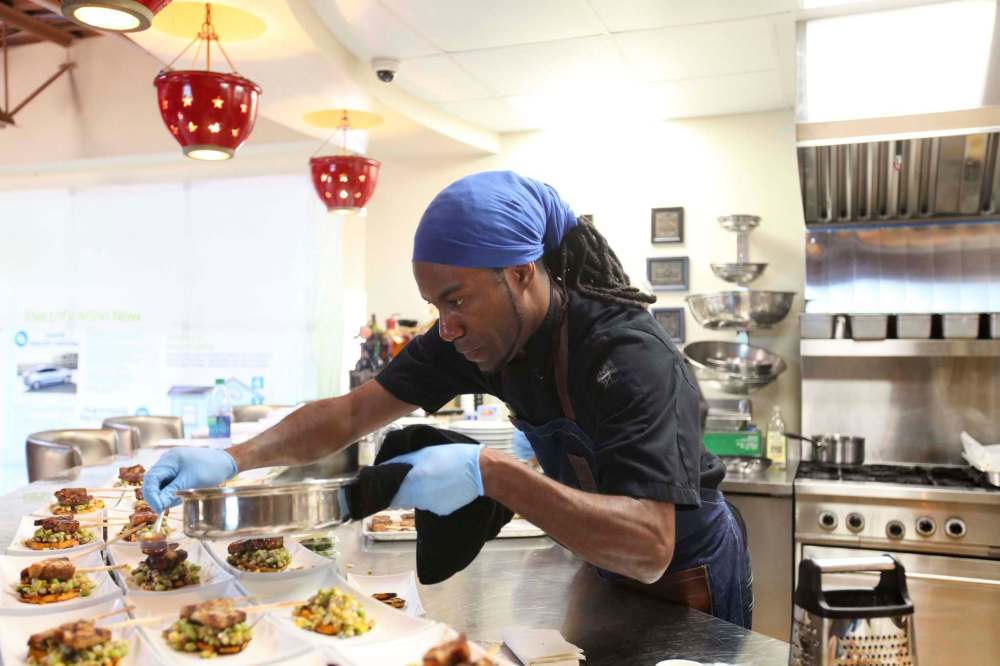Winnipeg chef Rob Thomas acquitted of sexual assault
Advertisement
Read this article for free:
or
Already have an account? Log in here »
To continue reading, please subscribe:
Monthly Digital Subscription
$0 for the first 4 weeks*
- Enjoy unlimited reading on winnipegfreepress.com
- Read the E-Edition, our digital replica newspaper
- Access News Break, our award-winning app
- Play interactive puzzles
*No charge for 4 weeks then price increases to the regular rate of $19.00 plus GST every four weeks. Offer available to new and qualified returning subscribers only. Cancel any time.
Monthly Digital Subscription
$4.75/week*
- Enjoy unlimited reading on winnipegfreepress.com
- Read the E-Edition, our digital replica newspaper
- Access News Break, our award-winning app
- Play interactive puzzles
*Billed as $19 plus GST every four weeks. Cancel any time.
To continue reading, please subscribe:
Add Free Press access to your Brandon Sun subscription for only an additional
$1 for the first 4 weeks*
*Your next subscription payment will increase by $1.00 and you will be charged $16.99 plus GST for four weeks. After four weeks, your payment will increase to $23.99 plus GST every four weeks.
Read unlimited articles for free today:
or
Already have an account? Log in here »
Hey there, time traveller!
This article was published 10/08/2017 (3037 days ago), so information in it may no longer be current.
A well-known Winnipeg chef has been acquitted of sexual assault after a judge ruled the criminal case against him had not been proven beyond a reasonable doubt.
Rob Thomas, 39, was found not guilty Thursday by Court of Queen’s Bench Justice David Kroft, who made a distinction between the complainant’s credibility and the extent to which the court could legally rely on her testimony.
“At the end of the day, I am left with reasonable doubt as to whether Mr. Thomas committed the alleged assault,” Kroft said. “My doubt is not rooted in a finding that the complainant or any of the Crown witnesses were dishonest in their testimony, lacked sincerity or were evasive. Again, that is not the source of my doubt. Instead, my doubt arises principally from concerns as to the reliability of the complainant’s evidence.”

Thomas was accused of raping a then-21-year-old woman he knew through a mutual friend. A court-ordered publication ban prevents her identity from being published. She testified he pushed her down onto a concrete stairwell in a downtown Winnipeg parkade and sexually assaulted her after they took a walk from a wedding reception they both attended on Aug. 25, 2007. Thomas testified no such incident happened. He told court he didn’t have sex with the complainant, only that she initiated a sexual encounter and then wanted to stop, which he said he did.
The defence’s case pointed out discrepancies between what the complainant had told police when she reported a sexual assault in December 2014 and what she told Justice Kroft during her testimony in June, including the admitted gaps in her memory. The judge said he considered all of it before coming to his decision, and couldn’t accept Crown attorney Danielle Simard’s argument that the complainant’s version made more sense.
“My reliability concern does not trace back to one piece of evidence. It results from a combination of factors. I’m referring to the totality of those memory frailties, discrepancies and other matters identified by defence counsel,” Kroft said.
Thomas is a well-known chef who has routinely made appearances on local TV and radio stations to share cooking tips and talk about local cuisine. In an emailed statement to the Free Press provided by his defence lawyer, Hymie Weinstein, Thomas said he is grateful for the support of his family and friends, as well as the expertise of his lawyers, during the court process that was triggered after the charge was laid in 2015.
“I said from day one I was not guilty. This has impacted my life and work for over two years, and as difficult as it has been for my family and I, the courts have recognized and acknowledged my innocence,” he wrote.
“I am looking forward to putting this behind me.”
The complainant came forward to police in December 2014, seven years after the alleged sexual assault, after another man groped her outside a beer vendor. She said memories of the 2007 incident were triggered and she started going to therapy, which helped her relive the incident as part of her cognitive behavioural therapy treatment. She testified there are still chunks of time she doesn’t remember about that evening, but “certain things did become more clear.”
“According to the complainant, the therapy assisted her to compartmentalize and recall aspects of the alleged assault. No expert evidence was called to explain the therapy or the degree of comfort the court should have relying on memories emerging seven years after the event,” Kroft said. The judge said he would have liked to hear from experts who could have testified about the effects of cognitive behavioural therapy on memories, and what role alcohol intoxication may have played in the complainant’s ability to recall the events of that night.
“I note that especially given the passage of time and the evidence that memories were retrieved through cognitive behavioural therapy, some expert evidence in respect to that therapy and the memories arising from that process would have been of assistance to the court,” Kroft said.
In an email to the Free Press, the complainant said she is glad she came forward despite the not guilty verdict.
“I do not consider this a loss. I feel as though coming forward has been a healing experience for me, and I am glad to be a part of the equation for change,” she wrote.
The day before the judge delivered his decision, Ontario’s Superior Court of Justice cautioned against assuming all victims are telling the truth. In a ruling that acquitted three Toronto police officers of sexually assaulting a parking enforcement officer, Justice Anne Molloy said courts can’t automatically side with victims because that would lead to a presumption of guilt for the accused. She also said court decisions on sexual assault cases shouldn’t be based on stereotypical ideas of how victims behave. Those stereotypes have been called out by various courts across the country, including Manitoba’s Court of Appeal.
katie.may@freepress.mb.ca
Twitter: @thatkatiemay

Katie May is a multimedia producer for the Free Press.
Our newsroom depends on a growing audience of readers to power our journalism. If you are not a paid reader, please consider becoming a subscriber.
Our newsroom depends on its audience of readers to power our journalism. Thank you for your support.




